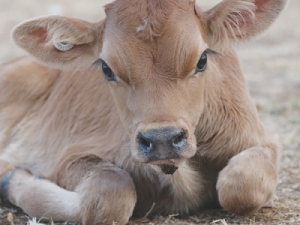It may be the 'quiet' time of year for dairy farmers, but clearly most are not sitting relaxing in their armchairs.
Many are preparing their farms for the onslaught of calving in the cold and wet for what will seem like endless hours. And they need to have all their farm equipment in top working order and new staff briefed on what is expected of them and how best to manage this annual major event.
But this season a raft of new regulations are coming into force on health and safety, environment and animal welfare.
A major issue for dairy farmers is the handling of bobby calves. DairyNZ has been proactive in this, working with the Ministry of Primary Industries and the New Zealand Veterinary Association to run farmer workshops to make sure they clearly understand their obligations under the new regulations. Vets run them and they're a smart move because farmers will get informed, practical answers.
According to DairyNZ, the workshops give farmers confidence to risk-proof their farm, fine-tune calf care processes and train their teams. They also confirm fit-for-transport requirements, identify good calf loading facilities and help refine communications between farmers and truckies.
Also, health and safety seminars run by Beef + Lamb NZ are proving popular with dairy and sheep and beef farmers. Come late June, BLNZ will have run about 70 seminars nationwide – double the number they intended, such is the interest.
That wretched video shown by the animal rights group SAFE has sparked serious action, though to be fair new regulations were even then in the pipeline. The new laws are explicit about handling bobby calves, sheeting home the responsibilities to farmers, truckies and processors.
For example, no longer can bobby calves be simply manhandled off a farm and onto a truck. Proper shelter and loading facilities must be provided and there are laws requiring bobby calves to be fed close to the time they are picked up.
There is no excuse for farmers saying 'we didn't know', given all the publicity in the media and by dairy companies, DairyNZ and others.
Bobby calves may be a by-product of the dairy industry but until they are slaughtered they must be treated humanely.
The new regulations are good and the vast majority of farmers clearly agree with them.











